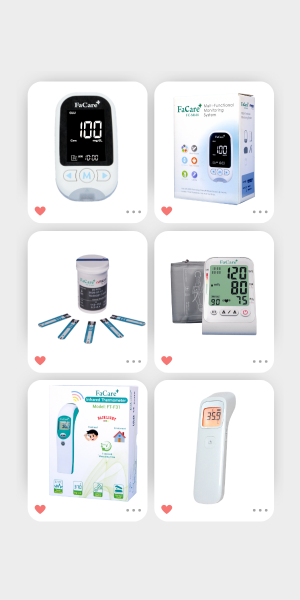Viêm loét đại tràng ảnh hưởng đến nguy cơ ung thư đại tràng của bạn như thế nào
Nếu bạn bị viêm loét đại tràng, bạn có thể có nguy cơ mắc các biến chứng đe dọa tính mạng khác. Tìm hiểu cách thực hiện.

Ulcerative colitis (UC) is an ongoing condition that can cause inflammation and open sores, called ulcers, in the lining of your large intestines. It can start suddenly but usually begins slowly over time. UC can range from mild to severe. For most people, it comes and goes. Sometimes remission – time between flare-ups – can last for years.
If your condition is relatively mild, you may only have two to four bowel movements a day. The more serious your condition, the more likely you are to experience other common symptoms such as tiredness, fever, nausea, or weight loss.
About half of people with ulcerative colitis have symptoms that are classified as mild. This type of UC can usually be treated without surgery or other extreme measures.
Ulcerative colitis is often treated with medications. The medication used will depend on how severe it is. These drugs work by reducing inflammation in the large intestine. For mild cases, your doctor may prescribe:
There are also over-the-counter drugs that can help manage symptoms. These might include:
Eating a healthy and well-balanced diet is important even for mild cases of ulcerative colitis. This could help prevent it from getting worse. While research hasn’t found which specific foods cause ulcerative colitis symptoms, you may have certain “trigger foods” that can make symptoms worse. Talk with your doctor about creating a meal plan. They may refer you to a dietitian who can help you find a pattern.
A diet for ulcerative colitis generally involves:
While stress doesn’t cause ulcerative colitis, it can trigger flare-ups and make your symptoms worse. Try the following for lowering your stress levels:
Even if your condition is mild, your doctor may want you to occasionally get colonoscopies. These help your care team monitor the inside of your rectum and colon to make sure your treatments are working and you’re healing. It will also help them watch for signs of colon cancer, which is an increased risk for people with IBD.
SOURCES:
Cleveland Clinic: “Ulcerative Colitis,” “What Not to Eat If You Have Crohn’s Disease.”
Cochrane Reviews: “Probiotics for Induction of Remission in Crohn’s Disease.”
Gastroenterology & Hepatology: “The Role of Probiotics in IBD.”
Harvard Gazette: “Living Hydrogel Can Help Heal Intestinal Wounds.”
Journal of the Royal Society of Medicine: “Probiotics and Inflammatory Bowel Disease.”
Mayo Clinic: “Biofeedback,” “Ulcerative Colitis.”
National Institute of Diabetes and Digestive and Kidney Diseases: “Ulcerative Colitis.”
Osteoporosis and Related Bone Diseases National Resource Center: “What People with Inflammatory Bowel Disease Need to Know About Osteoporosis.”
Next In Treatment
Nếu bạn bị viêm loét đại tràng, bạn có thể có nguy cơ mắc các biến chứng đe dọa tính mạng khác. Tìm hiểu cách thực hiện.
WebMD giải thích các xét nghiệm được sử dụng để chẩn đoán bệnh viêm loét đại tràng, một bệnh về ruột kích thích.
Có mối liên hệ giữa viêm loét đại tràng và viêm cột sống dính khớp. Tìm hiểu lý do và cách kiểm soát các triệu chứng viêm khớp.
Các triệu chứng của viêm loét đại tràng rất khác nhau. Hầu hết mọi người đều bị bệnh nhẹ hoặc trung bình. Nhưng một số người có dạng bệnh nặng hơn. Tìm hiểu về sự khác biệt.
Tổng quan về xét nghiệm này, bác sĩ sử dụng để giúp chẩn đoán bệnh viêm loét đại tràng, bệnh Crohn và bệnh viêm mạch máu.
Tìm hiểu những vấn đề về mắt nào có liên quan đến bệnh viêm loét đại tràng và tìm hiểu các triệu chứng cũng như phương pháp điều trị.
Như thể viêm loét đại tràng (UC) chưa đủ khó để tự kiểm soát, căn bệnh này cũng có thể khiến bạn dễ mắc các tình trạng sức khỏe khác. Nguy cơ mắc các bệnh từ trầm cảm đến nhiễm trùng đến ung thư ruột kết của bạn có thể tăng lên.
Nguyên nhân gây viêm loét đại tràng rất khó xác định. Nhưng yếu tố di truyền, môi trường xung quanh và hệ thống miễn dịch của bạn đều có thể liên quan.
Mesalamine là một loại thuốc có thể giúp một số người mắc bệnh viêm loét đại tràng từ nhẹ đến trung bình thuyên giảm bệnh.
Viêm loét đại tràng (UC) là bệnh viêm ruột ảnh hưởng đến ruột già của bạn, gây kích ứng, viêm và loét ở đại tràng. Tìm hiểu thêm về các triệu chứng, nguyên nhân, chẩn đoán và điều trị UC tại WebMD.


